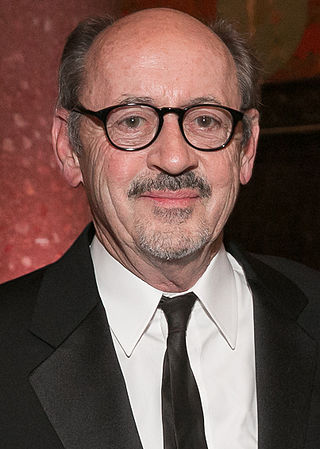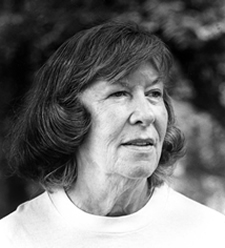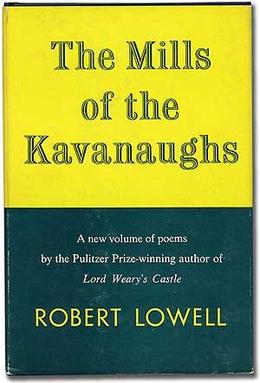
Louis Zukofsky was an American poet. He was the primary instigator and theorist of the so-called "Objectivist" poets, a short lived collective of poets who after several decades of obscurity would reemerge around 1960 and become a significant influence on subsequent generations of poets in America and abroad.

William James Collins is an American poet who served as the Poet Laureate of the United States from 2001 to 2003. He was a Distinguished Professor at Lehman College of the City University of New York, retiring in 2016. Collins was recognized as a Literary Lion of the New York Public Library (1992) and selected as the New York State Poet for 2004 through 2006. In 2016, Collins was inducted into the American Academy of Arts and Letters. As of 2020, he is a teacher in the MFA program at Stony Brook Southampton.

Mona Jane Van Duyn was an American poet. She was appointed United States Poet Laureate in 1992.

Michael Dana Gioia is an American poet, literary critic, literary translator, and essayist.
New Formalism is a late 20th- and early 21st-century movement in American poetry that has promoted a return to metrical, rhymed verse and narrative poetry on the grounds that all three are necessary if American poetry is to compete with novels and regain its former popularity among the American people.
Expansive Poetry is a movement in United States poetry that began in the 1980s. It is an umbrella term coined by Wade Newman for the movements of New Formalism and New Narrative, and the term is controversial even among many of the writers it purports to describe. Although more New Formalism and New Narrative poets have gained prominence in recent years, as evidenced by the number of books and anthologies they have published and the rapid expansion of the West Chester University Poetry Conference, the term "Expansive Poetry" is increasingly rarely used.

Jonathan Williams was an American poet, publisher, essayist, and photographer. He is known as the founder of The Jargon Society, which has published poetry, experimental fiction, photography, and folk art since 1951.

Molly Peacock is an American-Canadian poet, essayist, biographer and speaker, whose multi-genre literary life also includes memoir, short fiction, and a one-woman show.
Alicia Elsbeth Stallings is an American poet, translator, and essayist.
Ouyang Yu is a contemporary Chinese Australian author, translator and academic.

Charles Orwell Brasch was a New Zealand poet, literary editor and arts patron. He was the founding editor of the literary journal Landfall, and through his 20 years of editing the journal, had a significant impact on the development of a literary and artistic culture in New Zealand. His poetry continues to be published in anthologies today, and he provided substantial philanthropic support to the arts in New Zealand, including by establishing the Robert Burns Fellowship, the Frances Hodgkins Fellowship and the Mozart Fellowship at the University of Otago, by providing financial support to New Zealand writers and artists during his lifetime, and by bequeathing his extensive collection of books and artwork in his will to the Hocken Library and the University of Otago.
For the Australian former professional rugby league footballer, see Wayne Clifford.

Nigel Jenkins was an Anglo-Welsh poet. He was an editor, journalist, psychogeographer, broadcaster and writer of creative non-fiction, as well as being a lecturer at Swansea University and director of the creative writing programme there.
Rachel Hadas is an American poet, teacher, essayist, and translator. Her most recent essay collection is Piece by Piece: Selected Prose, and her most recent poetry collection is Love and Dread. Her honors include a Guggenheim Fellowship, Ingram Merrill Foundation Grants, the O.B. Hardison Award from the Folger Shakespeare Library, and an Award in Literature from the American Academy and Institute of Arts and Letters.

The Mills of the Kavanaughs is the third book of poems written by the American poet Robert Lowell. Like Lowell's previous book, Lord Weary's Castle, the poetry in Kavanaughs was also ornate, formal, dense, and metered. All of the poems are dramatic monologues, and the literary scholar Helen Vendler noted that the poems in this volume "were clearly influenced by Frost's narrative poems as well as by Browning."

Robert Louis Peters was an American poet, critic, scholar, playwright, editor, and actor. He held a PhD in Victorian literature. Born in an impoverished rural area of northern Wisconsin in 1924, his poetry career began in 1967 when his young son Richard died unexpectedly of spinal meningitis. The book commemorating this loss, Songs for a Son, was selected by poet Denise Levertov to be published by W. W. Norton in 1967. Songs for a Son began a flood of poetry.

Annie Finch is an American poet, critic, editor, translator, playwright, and performer and the editor of the first major anthology of literature about abortion. Her poetry is known for its often incantatory use of rhythm, meter, and poetic form and for its themes of feminism, witchcraft, goddesses, and earth-based spirituality. Her books include The Poetry Witch Little Book of Spells, Spells: New and Selected Poems, The Body of Poetry: Essays on Women, Form, and the Poetic Self, A Poet's Craft, Calendars, and Among the Goddesses.
Harry Alvin Duncan was a hand-press printer, author, librettist, translator, and publisher under his imprint the Cummington Press. He was known for publishing early works by Robert Lowell, Tennessee Williams, Wallace Stevens, Allen Tate, Marianne Moore, William Logan, Stephen Berg, and Dana Gioia. A 1982 Newsweek article about the rebirth of the hand press movement said that Duncan was "considered the father of the post-World War II private-press movement."
John Martin Finlay was an American poet and writer of essays, reviews, fiction, letters, and diaries.
Allan Mark Kornblum was an American publisher and fine printer who founded Coffee House Press, a nonprofit independent press based in Minneapolis, Minnesota. He was a poet and significant figure in the Actualist Poetry Movement.










